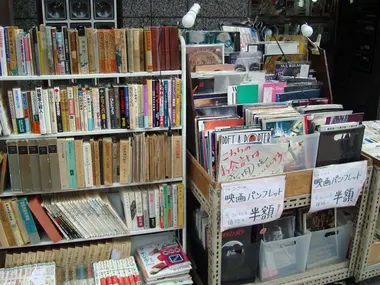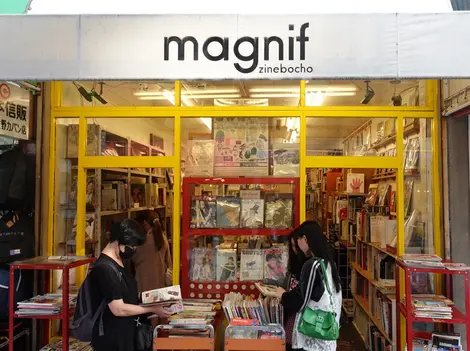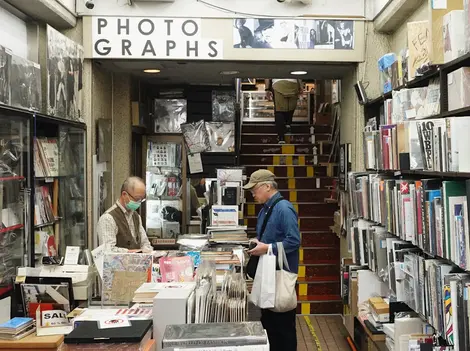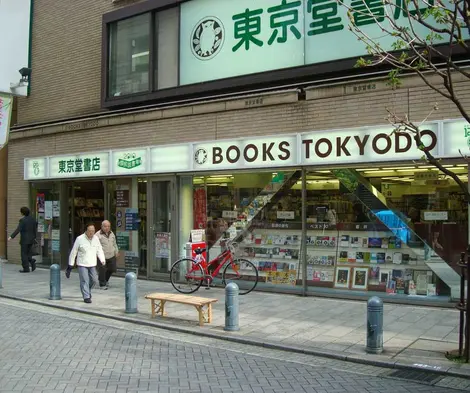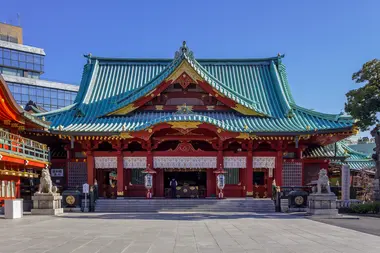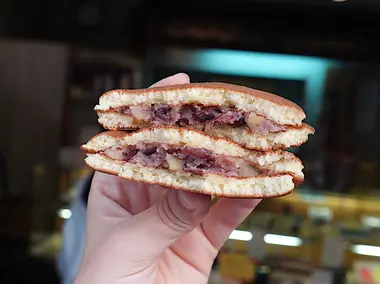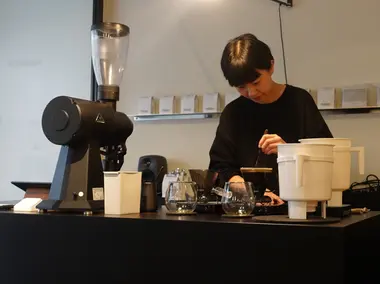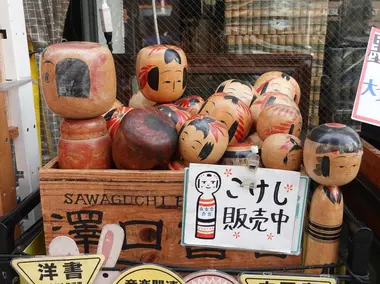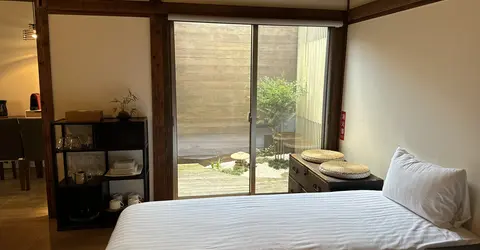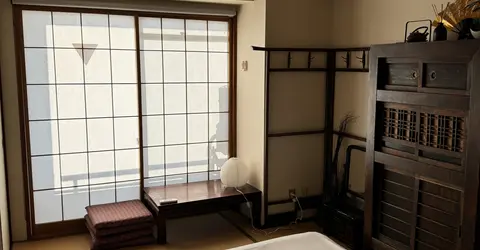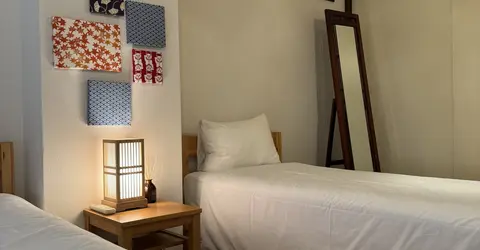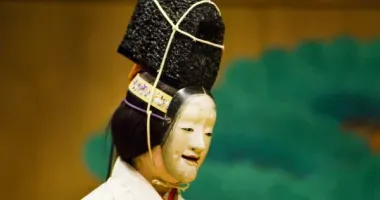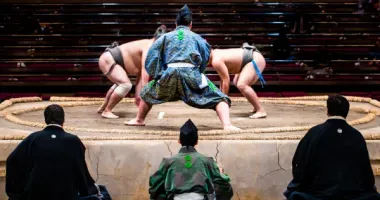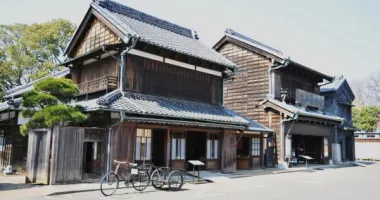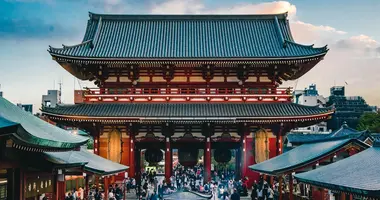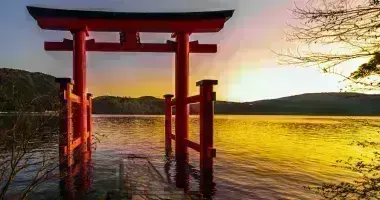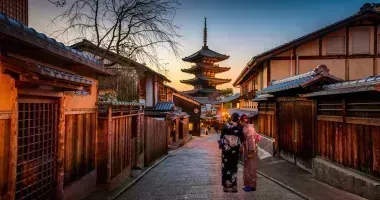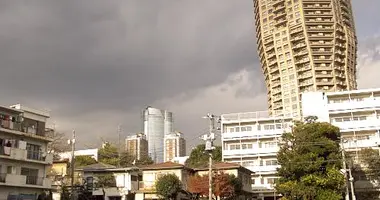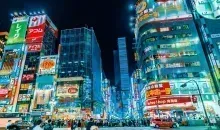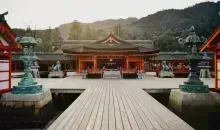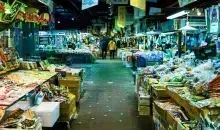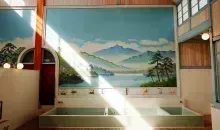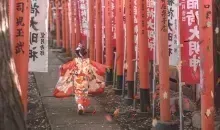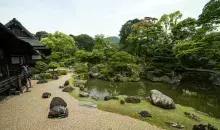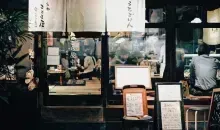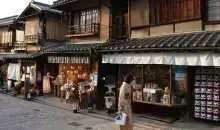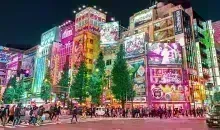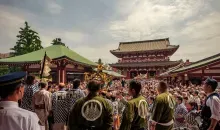Jimbocho: Tokyo's literary haven and book lover's paradise
Nestled in the heart of Tokyo, Jimbocho stands as a literary oasis for bibliophiles and intellectuals alike. This unique district, often referred to as "Book Town," is home to over 150 bookstores, publishing houses, and academic institutions. With its charming blend of old and new, Jimbocho offers visitors a chance to explore centuries of literary history while immersing themselves in Japan's vibrant book culture. Whether you're searching for rare first editions, browsing through stacks of used books, or simply soaking in the scholarly atmosphere, Jimbocho promises an unforgettable experience for book lovers from all walks of life. Let's embark on a journey through the winding streets of this bibliophile's paradise, where every corner holds the potential for literary discovery.
The history and evolution of Jimbocho
Jimbocho's rich history dates back to the Edo period when the area was home to numerous samurai residences. The district is named after Nagaharu Jinbo, a high-ranking samurai who lived in the area during the 17th century. However, Jimbocho's transformation into a book lover's haven began in the late 19th century when Japan underwent rapid modernization.
In the 1870s and 1880s, three of Tokyo's most prestigious universities were founded in Jimbocho: Meiji, Nihon, and Chuo (though Chuo has since relocated). The presence of these academic institutions attracted students, scholars, and intellectuals, creating a demand for bookstores and publishing houses in the area.
A pivotal moment in Jimbocho's history came in 1913 when a large fire destroyed much of the district. In the wake of this tragedy, a former teacher named Shigeo Iwanami opened a bookstore that would eventually grow into the renowned Iwanami Shoten publishing house. This event marked the beginning of Jimbocho's rebirth as a center for literature and learning.
Over the decades, Jimbocho continued to evolve, weathering challenges such as the Great Kanto Earthquake of 1923, which caused further destruction. Despite these setbacks, the area's reputation as a book town only grew stronger. Today, Jimbocho stands as a testament to the resilience of Tokyo's literary community and serves as a living museum of Japan's book culture.
Navigating Jimbocho's bustling streets and notable bookstores
Exploring Jimbocho can be an exhilarating experience for book lovers, with its maze-like streets lined with bookstores of all sizes and specialties. The heart of the district lies at the intersection of Yasukuni-dori and Hakusan-dori, where visitors can find a concentration of the most famous bookshops.
One of the most renowned stores in the area is Isseido Shoten, established in 1903. This venerable institution specializes in rare and antique books, offering a treasure trove of historical documents, first editions, and valuable prints. The store's knowledgeable staff can guide visitors through their extensive collection, which includes both Japanese and foreign language titles.
For those interested in English-language books, Bondi Books is a must-visit destination. Located on Yasukuni-dori, this second-hand bookstore offers a wide selection of affordable English books across various genres. It's an excellent place to find hidden literary gems at bargain prices.
Other notable bookstores include:
- Kitazawa Shoten: Specializing in foreign language books, particularly in the humanities and social sciences.
- Tokyodo: A large, multi-story bookstore offering new releases and bestsellers.
- Sanseido: Another major bookstore chain with a significant presence in Jimbocho.
- Komiyama Books: Multi-storied shops with different offerings on each floor. Great for fashion magazines and small goods.
- Stacks Book Store: A contemporary publication shop with a craft beer bar.
- Magnif: A vintage magazine specialty shop with a large selection of Japanese fashion magazines.
As you navigate the streets, keep an eye out for the many specialized bookstores that focus on niche topics such as art, music, or specific periods of Japanese history. These shops often hold rare and valuable collections that cater to collectors and researchers.
Beyond books: Jimbocho's cultural significance and attractions
While books are undoubtedly the main attraction, Jimbocho offers visitors much more than just literary pursuits. The district's rich cultural heritage is evident in its architecture, cafes, and various cultural institutions.
One of the area's most significant cultural landmarks is the Jimbocho Theater, completed in 2007. This modern facility hosts a variety of performances, including plays, concerts, and literary events. It serves as a hub for the local arts community and offers visitors a chance to experience contemporary Japanese culture.
For those interested in Japanese traditions, the nearby Kanda Myojin Shrine is worth a visit. This ancient Shinto shrine, dating back to the Edo period, is dedicated to scholarship and learning, making it a fitting complement to Jimbocho's bookish atmosphere.
Jimbocho is also home to several historic cafes and kissaten (traditional Japanese coffee shops) that have been serving the local literary community for decades. These establishments, such as Sabouru and Ladrio, offer a glimpse into the area's past and provide the perfect setting for reading or contemplation.
Art enthusiasts will appreciate the numerous small galleries and antique shops scattered throughout the district. These spaces often showcase works by local artists or display vintage posters and prints related to literature and publishing.
Universities and academic institutions in Jimbocho
Jimbocho's reputation as an intellectual hub is closely tied to the presence of several prestigious universities in the area. These institutions have played a crucial role in shaping the district's character and continue to contribute to its vibrant academic atmosphere.
Meiji University, founded in 1881, is one of the most prominent educational establishments in Jimbocho. Its campus, located near the heart of the book district, attracts thousands of students and scholars, contributing to the area's youthful and intellectual energy.
Nihon University, established in 1889, is another major academic presence in Jimbocho. As one of Japan's largest private universities, it brings a diverse student population to the area, further enriching the local community.
While Chuo University has since relocated its main campus, its historical connection to Jimbocho remains significant. The university's origins in the area date back to 1885, and it played a crucial role in establishing Jimbocho as a center of learning.
In addition to these universities, Jimbocho is home to several specialized academic institutions and research centers. The Literature Preservation Society and the Tokyo Book Binding Club are located in the area, contributing to the preservation and study of Japan's literary heritage.
The presence of these educational institutions not only supports the local book industry but also fosters an environment of intellectual curiosity and scholarly exchange. Students and professors can often be seen browsing the bookstores or engaging in lively discussions at local cafes, adding to the district's unique atmosphere.
Exploring Jimbocho's culinary scene and cafes
After hours of browsing through bookstores, visitors to Jimbocho can refuel at one of the many charming cafes and restaurants that dot the area. The district's culinary scene reflects its literary heritage, with many establishments catering to book lovers and offering cozy spaces for reading and relaxation.
One of the most famous cafes in Jimbocho is Sabouru, a retro-style coffee shop that has been serving the local community since 1955. With its unique decor, including graffiti-covered walls and a totem pole at the entrance, Sabouru offers visitors a glimpse into Tokyo's post-war cafe culture. Their fresh fruit juices and thick, fluffy toast are particularly popular among patrons.
For those seeking a more contemporary atmosphere, PAPER BACK CAFE offers a modern twist on the traditional bookstore cafe. Located within the Books Tokyodo building, this stylish establishment features a bilingual menu and ample seating spread across two floors, making it an ideal spot for both reading and socializing.
As a more storied neighborhood in Tokyo, there are also a number of great traditional Japanese confectionary shops in the area, Bunsendo being a staple of Jimbocho that has great offerings of daifuku and dorayaki, often visited by locals in the area.
Coffee enthusiasts should not miss GLITCH COFFEE & ROASTER, known for its expertly crafted pour-over coffees and single-origin beans. The cafe's industrial-chic interior and knowledgeable baristas create an atmosphere that appeals to both coffee aficionados and casual visitors alike. Pharos Coffee is also a great spot for coffee in the area, relatively new to the neighborhood yet with its own cult following.
For a taste of traditional Japanese cuisine, Kanda Burajiru offers an authentic kissaten (Japanese-style coffee shop) experience. Their menu features classic dishes like Napolitan pasta and curry rice, perfect for a quick and satisfying meal between bookstore visits.
These cafes and eateries not only provide sustenance but also serve as gathering places for the local literary community. It's not uncommon to see writers, students, and book lovers engrossed in conversation or quietly reading at these establishments, adding to Jimbocho's unique ambiance.
Practical tips for visiting Jimbocho
To make the most of your visit to Jimbocho, consider the following practical tips:
- Access: The most convenient way to reach Jimbocho is via Tokyo Metro. Take the Hanzomon, Mita, or Shinjuku lines to Jimbocho Station. Exit A7 will lead you directly to the main alleyway of bookshops.
- Timing: Most bookstores in Jimbocho open around 10:00 AM or 11:00 AM. Plan your visit accordingly, and consider arriving in the late morning or early afternoon for the best experience.
- Language: While many stores cater primarily to Japanese speakers, several shops specialize in foreign language books. Look for the characters 洋書 (yosho) which indicate foreign language sections.
- Cash: Some smaller bookstores may not accept credit cards, so it's advisable to carry cash.
- Map: Pick up a map of the area from the Book and City Information Center located on Kanda-Suzuran-Dori Street to help navigate the numerous bookstores.
- Respect: Many stores house rare and valuable books. Be mindful of handling books carefully and follow any specific rules set by individual stores.
- Seasonal events: Consider visiting during the Kanda Used Book Festival in autumn or the Jimbocho Book Festival, typically held in October, for special deals and events.
By following these tips, you'll be well-prepared to explore the literary treasures of Jimbocho and make the most of your visit to Tokyo's book town.
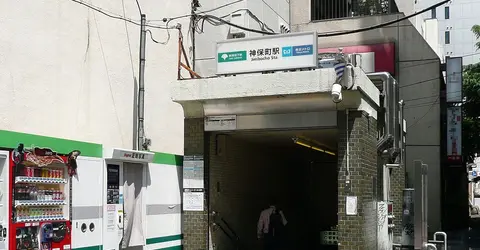
Jimbocho Station, Tokyo
@Wikimedia
Jimbocho's role in preserving Japan's literary heritage
Jimbocho plays a crucial role in preserving and promoting Japan's rich literary heritage. The district serves as a living archive of the country's intellectual and cultural history, housing countless rare and valuable books that span centuries of Japanese literature and scholarship.
Many bookstores in Jimbocho specialize in antiquarian books and historical documents, offering researchers and collectors access to materials that might otherwise be lost to time. Shops like Isseido Shoten, for example, house extensive collections of Edo-period (1603-1868) texts, woodblock prints, and manuscripts, providing invaluable resources for scholars of Japanese history and culture.
The district is also home to the Literature Preservation Society, an organization dedicated to the conservation and study of Japanese literary works. This institution works tirelessly to protect fragile texts and promote researchinto Japan's literary traditions.
Jimbocho's bookstores don't just preserve old texts; they also play a vital role in supporting contemporary Japanese literature. Many shops specialize in small-press publications and works by emerging authors, helping to nurture new talent and keep Japan's literary scene vibrant.
Moreover, the district's numerous publishing houses, including the renowned Iwanami Shoten, continue to produce high-quality literary and academic works, ensuring that Jimbocho remains at the forefront of Japan's intellectual discourse.
By visiting Jimbocho, book lovers and scholars alike contribute to the ongoing preservation of Japan's literary heritage. Every purchase made in these historic bookstores helps support the ecosystem that keeps this unique cultural treasure thriving in the heart of Tokyo.
As you explore the winding streets and browse the countless shelves of Jimbocho, remember that you're not just visiting a shopping district – you're stepping into a living, breathing monument to the written word. Whether you're a serious collector, a casual reader, or simply a curious traveler, Jimbocho offers a unique glimpse into the soul of Japanese literature and the enduring power of books to connect us across time and culture.
For more information on exploring Tokyo's diverse neighborhoods, check out our Tokyo Area Guides. If you're interested in other literary destinations in Japan, you might also enjoy visiting the nearby Kanda area or exploring the grounds of the Imperial Palace, both of which have their own rich cultural histories. Happy exploring!

